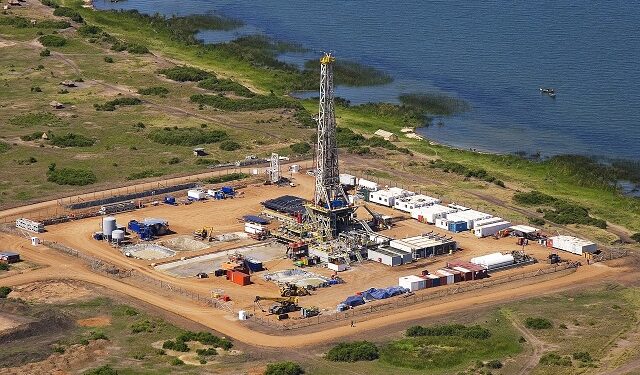Kampala, Uganda | THE INDEPENDENT — The Ugandan government has revised its projected timeline for the start of oil production in the Albertine Graben region, now targeting June 2026.
The delay has been attributed to setbacks in establishing critical infrastructure, including the East African Crude Oil Pipeline (EACOP) and the planned oil refinery.
Frank Mugisha, Assistant Commissioner at the Ministry of Energy and Mineral Development, announced the new timeline while representing Energy Minister Ruth Nankabirwa at the Third Annual Joint Civil Society Organizations (CSO) Conference held in Kampala.
Mugisha said the overall progress of the oil development projects stands at approximately 60 percent. These include the Kingfisher project in Kikuube District, led by CNOOC, and the Tilenga project in Buliisa and Nwoya districts, operated by TotalEnergies.
According to the Petroleum Authority of Uganda, over 100 oil wells had been drilled by mid-March 2025 by CNOOC and TotalEnergies.
Despite ongoing efforts, many Ugandans have expressed frustration over the prolonged delays. It has been nearly 20 years since commercially viable oil reserves were first discovered in the Albertine Graben.
Dr. Arthur Bainomugisha, Executive Director of the Advocates Coalition for Development and Environment (ACODE), reiterated public concerns during the conference.
Responding to these concerns, Mugisha emphasized that significant groundwork had to be completed before production could begin, including the development of legal and regulatory frameworks.
“I want to reassure the public that there will be no further extensions. The first oil is set for June 2026, and that date stands,” he said.
However, a source familiar with the developments noted that while extracting oil by mid-2026 may be feasible, the refinery project will likely not be completed by then.
In March, Uganda signed an agreement with UAE-based Alpha MBM Investments LLC to construct a crude oil refinery in Hoima District. The refinery will have the capacity to process 60,000 barrels of crude oil per day and is expected to reduce Uganda’s dependence on imported petroleum products.
Under the deal, Alpha MBM will hold a 60% stake, while the Uganda National Oil Company (UNOC) will retain 40%. Additional agreements with the investor are still pending, and a timeline for the start of construction has not been confirmed.
Until the refinery becomes operational, it is expected that Uganda will export all crude oil via the East African Crude Oil Pipeline.







Discussion about this post